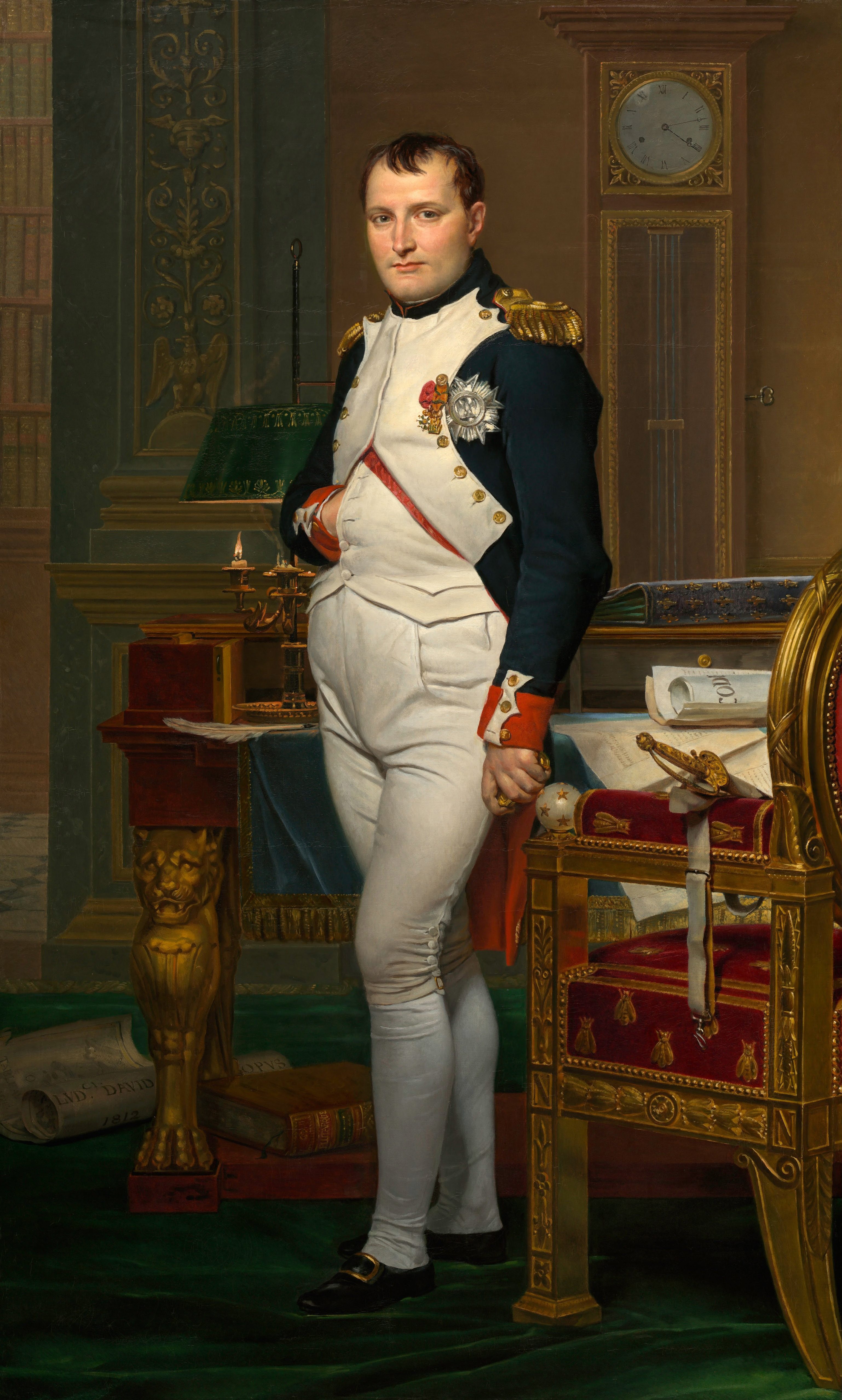Napoleon : In His Own Words (1916)
Napoleon I of France Quotes
Napoleon : In His Own Words (1916)
“Imagination governs the world.”
Napoleon : In His Own Words (1916)
“My maxim was, la carrière est ouverte aux talents, without distinction of birth or fortune.”
Statement while on St. Helena (3 March 1817)
“I don't know why, but the little bastard scares me.”
Laura Harrington http://www.laura-harrington.com/index4.html, in N http://www.pilgrimtheatre.org/performances/N/default.htm, portraying a comment by one of his generals when he showed up to command the army of Italy.
About
“Women are nothing but machines for producing children.”
The St. Helena Journal of General Baron Gourgaud (9 January 1817); as quoted in The St. Helena Journal of General Baron Gourgaud, 1815-1818 : Being a Diary written at St. Helena during a part of Napoleon's Captivity (1932) as translated by Norman Edwards, a translation of Journal de Sainte-Hélène 1815-1818 by General Gaspard Gourgaud
“What then is, generally speaking, the truth of history? A fable agreed upon.”
Conversation with Emmanuel, comte de Las Cases (20 November 1816), Mémorial de Sainte Hélène, v. 4, p. 251 http://books.google.com/books?id=945jAAAAMAAJ&vq=%22fable%20agreed%20upon%22&pg=PA251. However, the phrase predates Napoleon. Helvétius attributes it to Bernard le Bovier de Fontenelle, De l'esprit (1758), p. 443 http://books.google.com/books?id=N7g8AAAAcAAJ&vq=%22fable%20convenue%22&pg=RA1-PA443
“A book in which there were no lies would be a curiosity.”
Napoleon : In His Own Words (1916)
“Kiss the feet of Popes provided their hands are tied.”
Memoirs of Napoleon (1829-1831)
“There is no subordination with empty stomachs.”
As attributed in Count Emmanuel de Las Cases, “Journal of the Private Life and Conversations of the Emperor Napoleon at Saint Helena”, 1824.
Attributed
Hippolyte Taine in Napoleon's views on religion.
About, Other
Source: Archive https://archive.org/stream/jstor-25102177/25102177_djvu.txt
Address to the Legislative Body (December 1813) https://en.wikisource.org/wiki/Napoleon%27s_Addresses/Part_V#Address_to_the_Legislative_Body,_December,_1813.; he here echoes the remark attributed to Louis XIV L'état c'est moi ( "The State is I" or more commonly: "I am the State.")
“The hand that gives is above the hand that takes.”
Italian saying, quoted by Bonaparte during the first Italian campaign to highlight the financial dependence of the Directoire on the plunder from the Army of Italy, according to Lucian S. Regenbogen, Napoléon a dit : aphorismes, citations et opinions, p. 82.
Attributed
Original: La main qui donne est au-dessus de celle qui reçoit.
Napoleon : In His Own Words (1916)
Napoleon : In His Own Words (1916)
Napoleon : In His Own Words (1916)
“If you make everything difficult, the really hard things seem less so.”
With Napoleon in Russia: The Memoirs of General De Caulaincourt, Duke of Vicenza
Cited in De Laugier, Vicissitudes of the Italian people from 1801 to 1815, to. X, Firenze, 1836, p. 43 – Aless. Zanoli, About the Italian army, historical-statistical outline from 1796 to 1814, vol. II, Milano, 1845, p. 145.
“Anarchy is the stepping stone to absolute power.”
Source: Napoleon Bonaparte, Napoleon's War Maxims: With His Social and Political Thoughts (1804-15), Gale & Polden, (1899) p. 148
As quoted in Memoirs of Count Miot de Melito (1788 - 1815) as translated by Frances Cashel Hoey and John Lillie (1881), Vol. II, p. 94
“Commerce unites men and make them; therefore it is fatal to despotic power.”
Napoleon Bonaparte, Napoleon's War Maxims: With His Social and Political Thoughts (1804-15), Gale & Polden, (1899) p. 150
“Where do you think you are going? Can’t you see that the battle is won? Come on, stand firm!”
During the final stages of the Battle of Lutzen
“From the sublime to the ridiculous is but a step.”
Speaking about troubles in the invasions of Russia (10 December 1812), as recorded by Abbé du Pradt, and quoted in History of Europe from the Commencement of the French Revolution in 1789, to the Restoration of the Bourbons in 1815, Vol. 3 (1842) by Sir Archibald Alison, p. 593
Variant translations:
There is but one step from the sublime to the ridiculous.
There is only one step from the sublime to the ridiculous.
